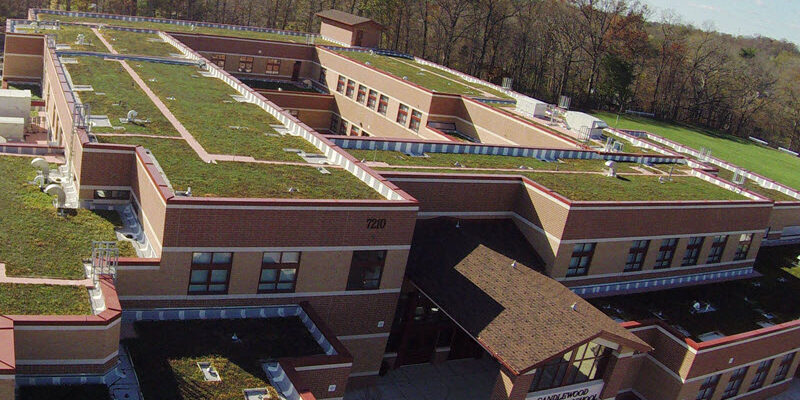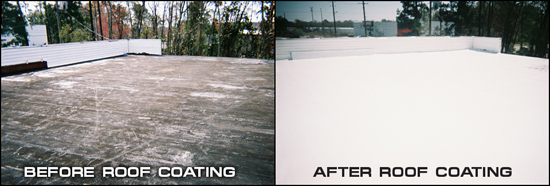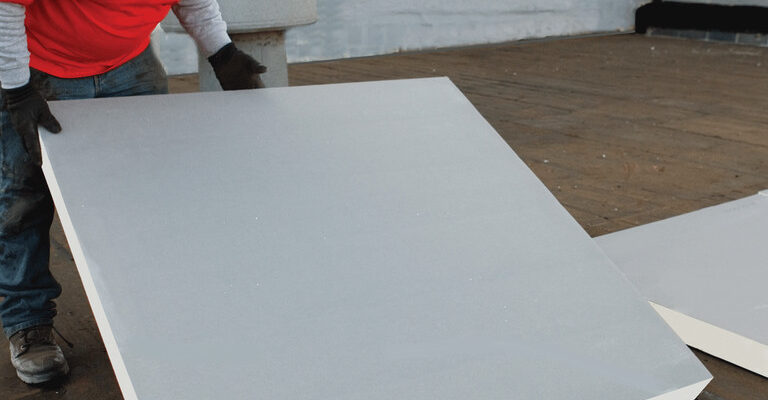In recent years, there has been a growing emphasis on sustainable and environmentally friendly practices in the construction industry. Here are a few of the now frequently selected choices:
Vegetative roofs, also known as green roofs, are designed with a layer of vegetation planted on the roof surface. These roofs provide numerous benefits, including enhanced energy efficiency, reduced stormwater runoff, and improved air quality. The vegetation acts as a natural insulation layer, reducing heat transfer and lowering cooling costs. Additionally, the plants help absorb and filter rainwater, reducing the strain on stormwater management systems. They can enhance the aesthetic appeal of commercial buildings, creating green spaces and urban oases.
Solar roofing is a sustainable option that combines energy generation with the protection and coverage of a roof. Photovoltaic (PV) panels are installed on the roof surface to harness solar energy and convert it into electricity. Commercial buildings with solar roofs can generate their own renewable energy, reducing reliance on traditional power sources and lowering utility costs. With advancements in technology, solar panels have become more efficient and affordable, making them a viable option for commercial buildings.
Cool roofs are designed to reflect more sunlight and absorb less heat compared to traditional roofing materials. These roofs help reduce the urban heat island effect by reflecting solar radiation away from the building. Cool roofs can lower indoor temperatures, reducing the need for air conditioning and decreasing energy consumption. They also extend the lifespan of the roof by minimizing heat-related damage. Cool roofing materials are available in a variety of options, including reflective coatings, tiles, and shingles, allowing commercial building owners to choose the most suitable option for their needs.
Rainwater Harvesting Roofs are designed to capture and store rainwater for future use. These roofs are equipped with a collection and filtration system that channels rainwater into storage tanks or reservoirs. Harvested rainwater can be used for landscape irrigation, flushing toilets, or other non-potable water needs within the building.
Recycled and Sustainable Roofing Materials are another green roofing option. These materials are made from recycled content, such as recycled rubber, plastic, or metal. They provide a durable and environmentally friendly alternative to traditional roofing materials. Sustainable roofing materials, such as clay or slate tiles, are long-lasting and can be sourced from renewable or eco-friendly materials.
The use of environmentally supportive roofing options for commercial buildings offer a range of benefits and the options are growing as facility owners and stakeholders expect sustainability from commercial and industrial facilities.




